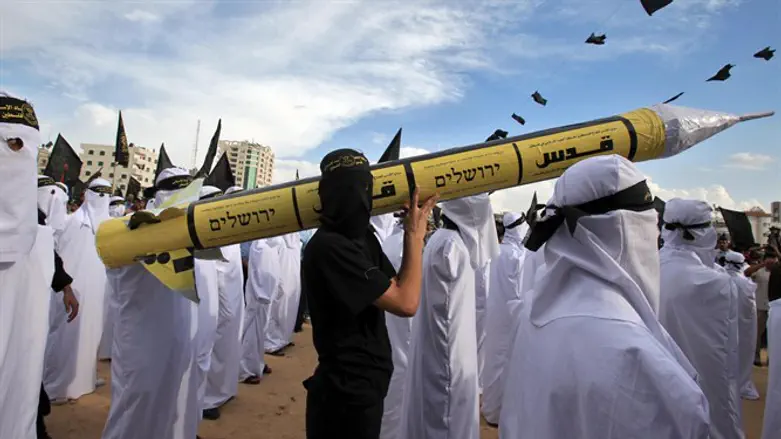
From time to time, one hears of a new group, faction or organization being formed in Iraq or other countries. All it takes is a statement on social media claiming responsibility for an attack by a certain group. It is difficult, however, to bank on the effectiveness of efforts to curb the instrumentalization of these groups for specific political purposes, such as sanctions or terrorist labeling.
The problem is that these are primarily shadowy groups that know how to cower and camouflage themselves, which makes any attempt by states to address these cross-pollinating groups through political means rather ineffective.
The problem is not just in Iraq, but in all countries that suffer from the scourge of radical terrorist organizations and gangs that form, multiply, vanish and pop up in the blink of an eye. This is what happened in the recent attack on an Iraqi military base in Erbil.
The attack was claimed by a group calling itself the Awliya Al Dam Brigades. The attack prompted a response from the Biden administration, which for the first time since taking office bombed militia camps on the Iraqi-Syrian border.
The production and reproduction of militias is the responsibility of the Iranian mullahs, who are as skilled as the famous Persian carpet weavers. The IRGC has in fact woven a vast network of militias in Iraq and Syria over the past few years.
Some media reports even estimate the number of these militias at a dozen, since the names and identities of these militias are nonsensical or superficial, with logos and names that can change at the flick of a switch by a message from the IRGC command.
Given their investment in militias in the countries of the region, the regional landscape suggests that the Iranian mullahs will not compromise easily, especially at the negotiating table.
The leadership of the Revolutionary Guards, at least, will have to refuse to disband these militias, which have become a lucrative business and a major source of plundering the wealth of the region’s people. It is therefore necessary for the Biden administration to go beyond its very cautious calculations in dealing with these militias.
They are no longer a threat only to Iraq, but also to the US military presence in Iraq and elsewhere.
More seriously, the militias have crossed many red lines, as the US military command acknowledges, such as in this attack that would have killed dozens of US soldiers if prior intelligence had not been provided by a third party, said Gen. Frank McKenzie, commander of US Central Command, in a CBS interview.
President Biden’s administration certainly wants to take the snake by the head through negotiations, believing it will ensure that the threat of this large militia network is eliminated. This is theoretically possible.
But the Iranian mullahs are well aware that the militias are one of their most significant sources of power and influence. It is therefore difficult to expect that they can be abandoned and dismantled once and for all without the mullahs getting what they want, to build up their regional influence and gain international recognition for it, or to get away with a nuclear program capable of building a bomb quickly and safely if the mullahs solve their problem once and for all.
The question is, would the Biden administration prefer to focus on the head or the organs of the snake? It is hardly possible to understand this complex situation without grasping all the details.
Striking down militia organizations affects the mullahs’ negotiating decision. Reaching an agreement with the head of the snake, on the other hand, may be enough to reduce the rule of these organizations. But this possibility remains contingent on the mullahs and their satisfaction with the blackmail they are inflicting on the great powers.
Therefore, the risk of militias persists unless it is eradicated from its roots. In fact, any agreement that may lead to these organizations entering a hibernation phase may, at some point, lead to a greater and more serious risk if the mullahs decide, for whatever reason, to put their arms back on the scene.
The militias may then be more armed and organized than they are by virtue of their quiet use of training and preparation for a comeback. Ultimately, turning Iranian militias in Iraq into a real threat to US forces does a disservice to President Biden’s strategy of focusing on diplomacy to solve problems.
US diplomacy has always succeeded when the US military response to any known abuse or violation by adversaries and enemies was a given. But when roving bands of rebels succeed in stirring up trouble and pushing the United States into a position of reaction, not intervention, talking of effective diplomacy becomes quite iffy.
Dr. Salem AlKetbi is a UAE political analyst and former Federal National Council candidate